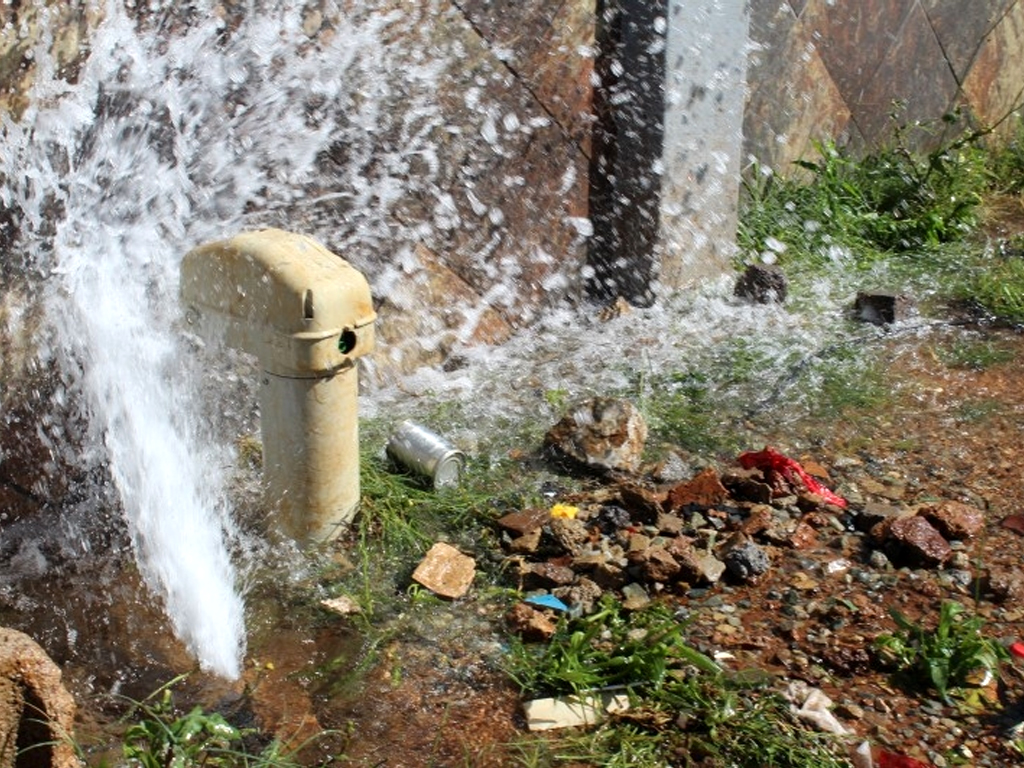Inefficient use of water resources

A World Bank report has accused Pakistan of making poor use of "significant" water resources. The economic costs from poor water and sanitation, floods and droughts are conservatively estimated to be 4 percent of GDP or around $12 billion per year, says the report. The question whether or not Pakistan has significant water resources, or it is "highly water-stressed", has generated a variety of opinions. While to some the glass is half full, the others say it is half empty. According to one school of thought, Pakistan is a water-rich country - only 35 countries have more renewable water. Instead of raising the alarm of water scarcity Pakistan is being told to 'shift its focus from scarcity to managing water demand, producing more from each drop of water'. From the national perspective, Pakistan is water-rich but only if it significantly improves its water-management. Otherwise, the water scarcity is rapidly on the rise, both because of the climate change and the hostile neighbour's design to steal Pakistan's share.
Irrespective of the broader context of the debate on supply and use of water what merits immediate attention is follow-up on the World Bank take on the use of water in Pakistan, and its plausible economic consequences. The said report deals in some depth with the outmoded irrigation system, lack of attention to environmental outcomes from water and water-dependent ecosystems, inadequate monitoring and data management and declining share of water in the GDP. The report is spot on by pointing out that in our so-called agricultural country its four major crops - wheat, rice, cotton and sugarcane-that consume nearly 80 percent of all available water generate less than 5 percent of GDP. As to what causes this imbalance the report lists poor water resource management right from its release to the field. There are many a leak on its way to the field. Not only is the work on brick-lining main canals far behind the targets, there is also extensive incidence of seepage from the drains and wasteful method of flood-irrigation. Efficient use of water by adopting new techniques like drip-irrigation or spray from above is not yet common either. Then there is also the paucity of high-yield seeds as well as expensive use of tractors. The fertilizers, which are now inescapable need for the tired fields, are beyond the reach of small farmers. And what that small farmer gets in return is ridiculously low prices offered for his produce. A case in point is a recent protest of potato growers in front of the Punjab Assembly, who were being forced to sell their output at the rate of Rs 5 per kilo. The hard fact is that for the small farmers agriculture is no more economically viable. Not only are the required inputs beyond their reach, there is no mechanism in place to ensure that get fair prices. The task before the government should be to see to it that they don't give up farming and move to the city in search of so-called greener pastures.
There are also quite a few interesting observations in the World Bank report that deserve to be noted by the concerned departments of the government. According to the report, the climate change is no doubt the biggest long-term and currently unmitigated external risk to the water sector, but it is not going to 'alter average water availability over coming decades'. But there is no clear vision of the issue on the part of the concerned authorities, laments the World Bank; it also believes that water sector financing is below the recommended levels. The biggest challenges, it says, are ones of governance especially regarding irrigation and urban water supplies. One may argue that given the fact that inflow of water from natural resources is almost synchronous to its outflow for the seasonal cropping, the demand for big storage dams should be subjected to an intensive study. But the irony is that in a country, whose agricultural potential is critical in terms of food security and employment, should be asked to sit on the back benches. To sum up, water is life for Pakistan; this gift of God should not be trivialized. Its usage must be properly managed.






















Comments
Comments are closed.